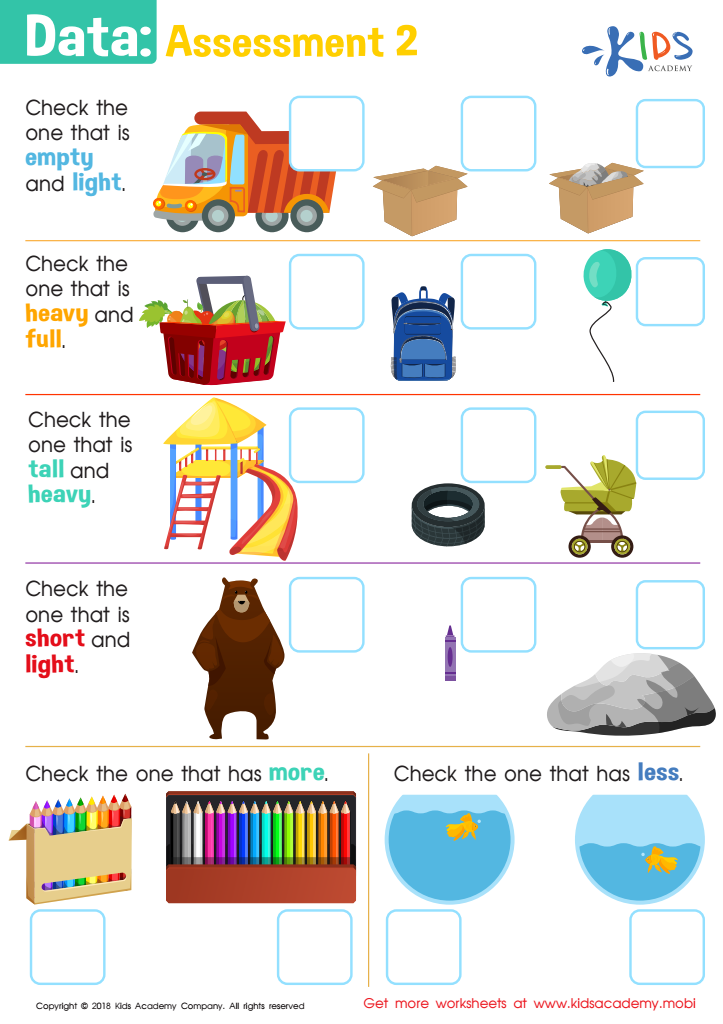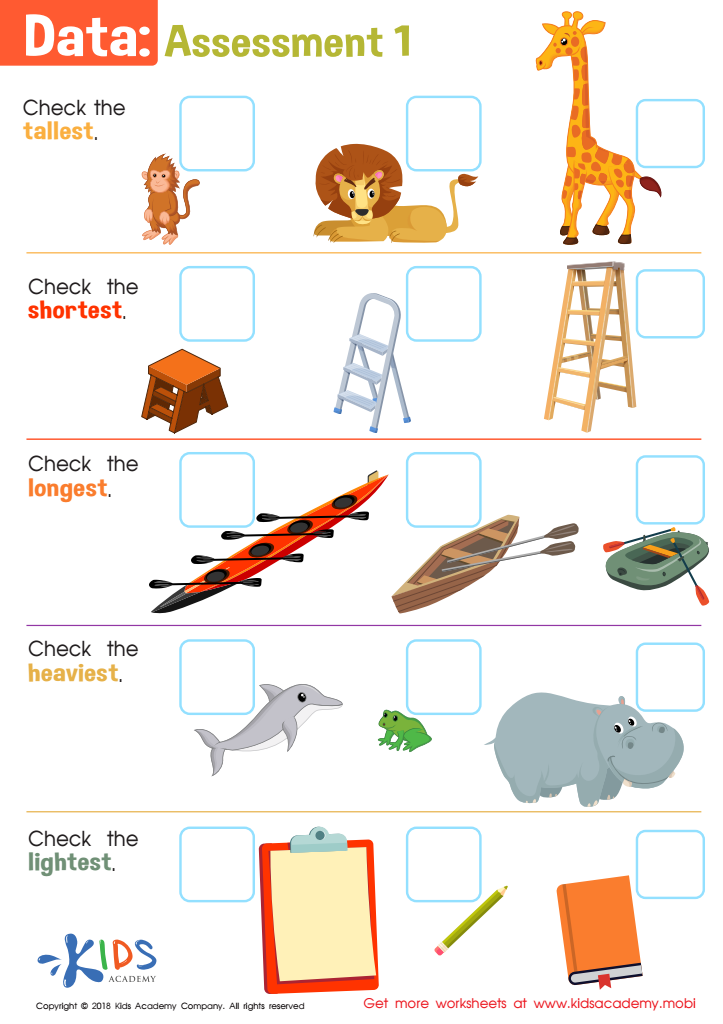Measurement worksheets activities for 6-Year-Olds
2 filtered results
-
From - To


Data: Assessment 2 Worksheet


Data: Assessment 1 Worksheet
Measurement worksheets activities are an invaluable tool for educators and students alike, offering a multitude of benefits that extend far beyond the classroom. These activities serve as a bridge between theoretical knowledge and practical application, making the abstract concept of measurement tangible and understandable.
Firstly, measurement worksheets activities are designed to enhance understanding. Measurement, being a foundational aspect of mathematics and science, requires a solid grasp of units, tools, and techniques. Through structured exercises, students can explore various dimensions such as length, weight, volume, and temperature, gaining a deeper insight into how different units relate to one another and to the real world.
Furthermore, these activities foster critical thinking and problem-solving skills. By engaging with measurement worksheets, students are challenged to think analytically about how measurements are taken and interpreted. This not only reinforces their mathematical reasoning but also prepares them for real-life scenarios where precise measurement is crucial, such as in cooking, construction, and science experiments.
In addition, measurement worksheets activities are incredibly versatile, catering to a wide range of age groups and learning levels. They can be easily adapted to suit individual learning styles and paces, making them an excellent resource for differentiated instruction. Whether it's introducing young learners to the concept of measurement through simple length comparison exercises or challenging older students with more complex calculations and conversions, there’s a worksheet activity to meet every educational need.
Lastly, these activities provide immediate feedback, which is essential for effective learning. As students complete each task, they can quickly assess their understanding of the concept and identify areas that need further clarification. This instant validation helps boost confidence and encourages a positive attitude towards learning.
In conclusion, measurement worksheets activities are a critical component of the educational toolkit. By offering a hands-on approach to learning measurement, these activities not only enrich students’ mathematical knowledge but also equip them with practical skills that are applicable in everyday life.
 Assign to My Students
Assign to My Students



.jpg)












